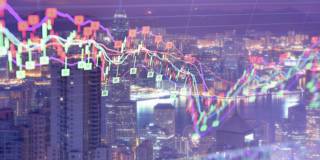If the pandemic turns out to be only a temporary disruption, it will be remembered as little more than another tragedy – memorable, but essentially a discrete event. If, however, the disruption of 2020 spurs deeper reflection on the relationship between government and the governed, then this horrible year will come to be viewed as a focal point, rather than a data point.
MADRID – Some years are barely mentioned in history books; others get their own chapters. The last year certainly feels like the latter, and there is no doubt the COVID-19 pandemic, like the Spanish flu pandemic of 1918-20, will be long remembered. But what makes a year truly remarkable is not how it unfolds, but rather how it changes the world. An anomalous year, after which the world returns to business as usual, means far less, historically, than an inflection-point year that brings about a great transformation and marks the start of a new human epoch. Which will 2020 be?
There is good reason to think the world has been irrevocably changed in 2020. In particular, the events of the last 12 months may well have triggered a fundamental reshaping and rebalancing of the relationship between state and society, particularly in Western liberal democracies.
Since the Cold War ended, Western democracies’ social and economic models have become increasingly imbalanced. Free markets, once viewed as a powerful means of strengthening liberal democracy (by creating a rights-demanding middle class), are now an end in themselves – an ideal to uphold, no matter the cost.

MADRID – Some years are barely mentioned in history books; others get their own chapters. The last year certainly feels like the latter, and there is no doubt the COVID-19 pandemic, like the Spanish flu pandemic of 1918-20, will be long remembered. But what makes a year truly remarkable is not how it unfolds, but rather how it changes the world. An anomalous year, after which the world returns to business as usual, means far less, historically, than an inflection-point year that brings about a great transformation and marks the start of a new human epoch. Which will 2020 be?
There is good reason to think the world has been irrevocably changed in 2020. In particular, the events of the last 12 months may well have triggered a fundamental reshaping and rebalancing of the relationship between state and society, particularly in Western liberal democracies.
Since the Cold War ended, Western democracies’ social and economic models have become increasingly imbalanced. Free markets, once viewed as a powerful means of strengthening liberal democracy (by creating a rights-demanding middle class), are now an end in themselves – an ideal to uphold, no matter the cost.